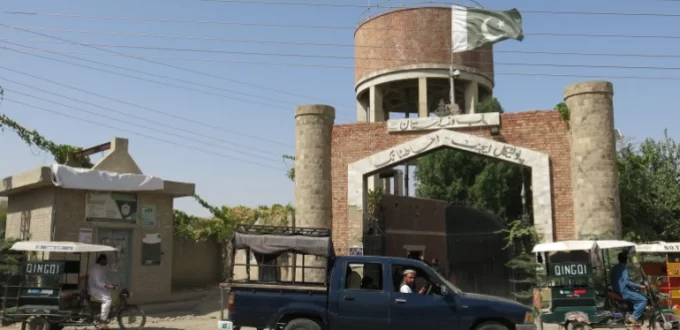Every night, Muhammad Nadeem gathers his weary body and begins the first watch. His rifle across his lap, he sits at the entrance of his home in the northwestern Pakistani town of Tank and waits.
Periodically, he will walk around the house’s perimeter, checking for activity in the streets of this dusty backwater of a town, located adjacent to his native South Waziristan district, about 300km (186 miles) southwest of the capital Islamabad.
The authorities’ hold over law and order in this part of Pakistan has historically been tenuous, but Nadeem is not spending sleepless nights because of local thieves or criminals.
His concerns are slightly more serious: Nadeem is standing guard against the Pakistani Taliban.
This year has seen a marked uptick in violence in the South Waziristan and adjoining North Waziristan districts – once the birthplace and headquarters of the Tehreek-e-Taliban Pakistan (TTP, also known as the Pakistani Taliban) – and with the Afghan Taliban now controlling neighbouring Afghanistan, which borders both districts, residents of these areas say they fear a return to life under the TTP.
The situation is complex, analysts and residents say, and involves a resurgence of the TTP and its allied local militias, as well as Pakistani government-backed “surrendered” Taliban fighters, all engaged in targeted killings of civilians, extortion, tribal councils and attacks against security forces.
Since January, at least 69 people have been killed in 37 attacks across South and North Waziristan districts, according to data from the South Asia Terrorism Portal (SATP).
The attacks have included targeted killings of anti-Taliban civilians, extortion-related killings, checkpost raids and numerous improvised explosive device (IED) attacks targeting security forces, who account for 84 percent of all reported casualties in these areas.
Pakistan’s military attributes the rise in violence to “the evolving situation in Afghanistan”, according to a security source familiar with the matter, who spoke on condition of anonymity given the sensitivity of the subject.
“Shocks were felt in Pakistan due to evolving situation in Afghanistan,” said the source. “However, this scenario was short-lived as Pakistan’s security forces remain ready to deal with any internal [or] external threats.”


No Comments Yet